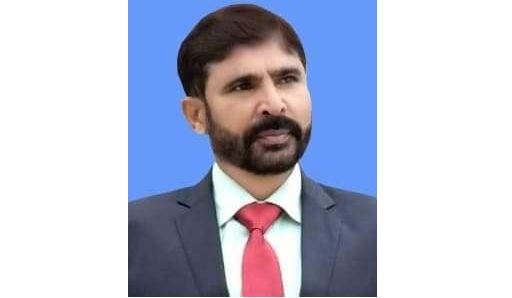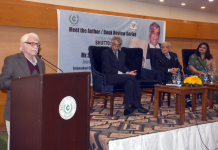Dr. Muhammad Akram Zaheer
The Hindu nationalist project, as conceived by its founders in the 1920s, aims to create a Hindu state in which there is congruence between the main cultural force in Indian society and political power. Since the 1980s, this goal has been sublimated into policies to build a Ram temple in place of the Babri Masjid in Ayodhya, repealing article 370 of the constitution, which grants special status to Jammu and Kashmir, and creating a uniform civilian body code that would abrogate Muslim personal law.
While previous BJP-led NDA governments have preferred to put these policies on the back burner, rather than promote cultural nationalism, the valorization of Hindu majority religion, language and history in everyday practices, under Modi there has been a clear shift in the valorization of Hindu majority religion, language and history in everyday practices, a redefinition of the sphere public, the secular space between state and society, in the language of Hindu nationalism.
In contrast to Nehru secularism, the post-independence India ideology associated with Jawaharlal Nehru, and the socialist outlook of the Congress, the icon of the contemporary BJP is Sardar Vallabhbhai Patel, whose Unity Charter was inaugurated by Modi in October 2018. These norms have been taken further by the Modi government in trying to control dissent. Feminists, radicals, writers, intellectuals, social activists and human rights defenders who have opposed government policies have been marginalized or physically attacked. Directly or indirectly, the government has used its influence in the media, particularly the burgeoning digital media, to unleash a tidal wave of sectarian Hindu nationalism as the official state ideology in which opponents are regularly labeled as anti-national. Sedition laws have been used against women, students, and political activists. Sangh parivar street activists: the family of Hindutva organizations that includes the Rashtriya Swayamsevak Sangh (RSS), Vishva Hindu Parshad (VHP), Bajrang Dal (BD), Akhil Bharatiya Vidyarthi Parishad (ABVP) and Bharatiya Mazdoor Sangh (BMS). ), and a wide variety of vigilante groups, have been regularly employed to discipline opponents, often resulting in physical confrontations or death.
There have also been intensive efforts to redefine citizenship by restricting the right of Indian citizenship to immigrants from Pakistan, Afghanistan and Bangladesh to non-Muslims only. A bill proposing this change failed only because the BJP was unable to secure a majority in the Upper House State institutions have also been used to foster crude jingoism. In 2014, RSS chief Mohan Bhagwat’s annual speech was broadcast live on the national television network, Doordarshan; and in October 2016, the College Scholarship Committee, in an official circular, called on affiliated universities and colleges to make a security pledge on Patel’s birth anniversary to commit to “preserving the unity, integrity, and security of the nation” in the presence of a freedom fighter who would speak of nationalism. This initiative came simultaneously with the government’s attempt to make it compulsory to play the national anthem in all cinemas before a film screening; and although this decision was overturned by the Supreme Court, it created an atmosphere of collective vigilantism against movie-goers who did not follow up the ruling with a reported case in Tamil Nadu. In seeking to redefine the public sphere as a non-secular space of majoritarian nationalism, the BJP and its ideologues argue that they are acting within the spirit of the constitution. So far, the initiatives taken by the government to water down Article 370, Muslim Personal Law, and to build a Ram temple on the site of the Babri Masjid, within the framework of the constitution, but the political results are sought out in line of the Hindutva agenda. Even the most key feature of the constitution, its state secularism, in the logic of Hindu nationalism, is being redefined from being “pseudo-secular” to “genuine secularism”. Gradually but inevitably, a new Hindutva republic is emerging in which there are no profound constitutional changes but where the “political processes” have already “begin to change”. The main antagonistic “other” of Hindu nationalism has been the religious minorities Christians, Muslims, Buddhists, Jains, Sikhs and Zoroastrians against whom the ideology of an ethnicized nation has been built. Traditionally, by making a distinction between religious minorities for whom India is a ‘holy land’ and ‘homeland’, and others, Hindu nationalists have tried to ‘assimilate the former within the broader pantheon of Hinduism and politically and socially exclude the latter as alien to India. This strategy has been applied vigorously in the BJP government’s policies towards minorities since 2014. Funding for minority development programs has been significantly reduced; policy initiatives undertaken by the previous United Progressive Alliance (UPA) government to improve equality and equity, especially for Muslims, in service delivery have been abandoned; Socioeconomically disadvantaged Christian and Muslim communities have been deliberately excluded from affirmative action, while that provision has been expanded to include the “poor” upper castes; and steps have been taken to restore legislative protections for scheduled castes and tribes against violence, in contrast to the denial of any equivalent protection to religious minorities, especially Muslims. These policies have also been carried out in an atmosphere of hostility, often emanating from the government itself. The Minister for Minority Affairs openly stated that “Muslims are not a minority and that the community’s concerns about security stemmed largely from a “psychosis of fear” that had taken hold of the Muslims of India. Similarly, the BJP’s Scheduled Caste Cell Secretary has urged poor Christians and Muslims to “convert back to Hinduism” if they wanted the benefits of the reserves. The campaigns orchestrated by the BJP mass organizations have had a far more debilitating impact on India’s religious minorities, particularly Muslims. Love Jihad was launched in Uttar Pradesh ahead of the and captured the national imagination as a fight against sexually rapacious Muslim youth who convert Hindu women to Islam through false declarations of love. Orchestrated by Yogi Adityanath, who later became the state’s Chief Minister in 2017 in a sweeping victory in the state’s elections, the campaign demonized interfaith marriages, framing it as an affront to traditional notions of patriarchy, family and community. Ghar wapsi emerged shortly after the election of the BJP government to convert Christians and Muslims to Hinduism, often with incentives such as ration cards to access state assets. It quickly turned into a debate about the need for national anti-conversion legislation to reinforce the highly restrictive freedom of religion legislation passed by many BJP state governments. Now it is time for the countries of the region to raise the issues arising from the Hindutva-driven policy in international and regional forums. The world community should not turn a blind eye to the continuing violations of human rights in India and Jammu and Kashmir.

















